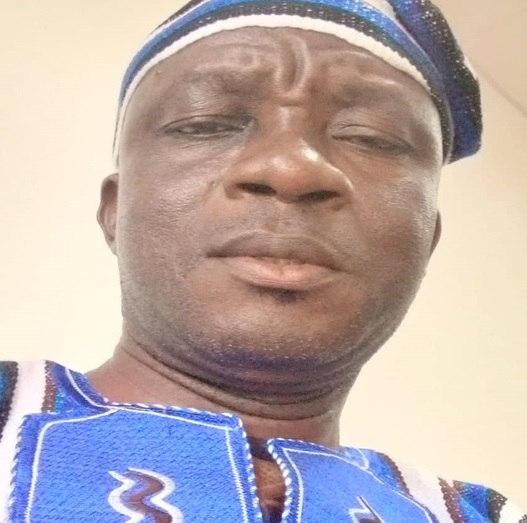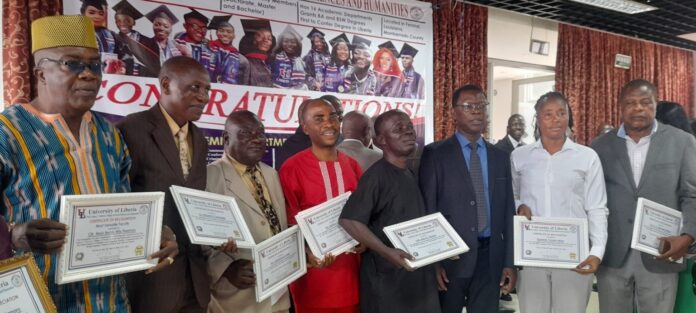An opinion by Jacob N.B. Parley
Journalism, in my opinion is one of the well-respected professions in nearly every modern society. The unique nature of the media profession can easily be sensed through the nature of respect Journalists command, except if things have changed here for the wrong reasons.
Before I officially began practicing on the national scene, I started building up my sills through a campus-based approach in the middle of the 80’s.
One of the things that quickly moved me so much was the manner in which people respected journalists those days.
For instance, while in high school, I recall listening some powerful voices like Willie Gompah, Kwame Clement, Martin Browne (the golden voice), the late Professor Joe W. Mulbah, among many other high-volume Liberian Journalists, whose names I cannot mention due to time factor. As time went by, my ambition to become a Journalist started to grow day after day. I do agree with others that one of the good sides of the media profession is that one becomes very popular overnight, especially the electronic media.
However, unlike some of my class mates at the time, I did not actually focus on popularity. Instead, my desire to become a Journalist was highly influenced by the kind of respect people had for Journalists during those days.
I know that journalism is a source of income for those of us who are involved in the field, just like other human professions.
Commanding such a high degree of respect from the public, in my thinking, speaks volumes about the aristocracy of journalism. I strongly believe that our colleagues, those days won a lot of respect because they worked for it to the extent that society had no regrets in reciprocation.
Here are some of the things I think journalists did during those days that helped in making most of them win public respect, compared to now:
- Journalists conducted themselves in a polite and orderly manner. Even though not everything they wrote was 100% error free, it however contained substantial elements of truth because ample time was sacrificed to do their job.
- They also had passion for the profession, and so they tried as much as possible to avoid practices that could question their veracity as media practitioners.
- During those days, I also observed that journalists had respect for one another; they respected their bosses, followed institutional policies and regulations.
4.During those days, journalists did not feel too big to consult others or ask questions about what they did not understand, compared with these days where everyone, especially tenderfoots in the field feel too big to be corrected.
- Journalists were very mindful of their social responsibility to society. This is why in most instances they had to critically consider the political, economic and religious implications of whatever news item was on hand before publication. But the story appears to be different nowadays as the pen appears to be controlling some of us, instead of being the ones to control the pen.
- I also observed that during those days, media debutants accepted corrections from their betters or even their peers who had some edge over them in terms of experience, compared with these days when some cub- reporters even go to the point putting up unreasonable argument when their editors try to call them to attention
- During those days, newly established media institutions were placed in the hands of experienced people, compared to now when some of these emerging media entities are led by a lot of inexperienced people.
There may be several factors. For instance, some media managers’ unwillingness to hire competent staff because they do not want to offer something attractive or either they do not have the means at all due to financial constraints in Liberian media, etc.
As journalists, we go to places where those in other professions do not easily go. Sometimes when we are in long queques in places like banks and hospitals, we are sometimes quickly recognized and served with some respect and urgency while others look on.
Is this not part of the respect I am m talking about?
Even though I am not trying to promote what human rights people may call cheating, but this is to simply reflect how journalists are respected.
This article is not intended to suggest that all of us who are currently found in the pen-pushing profession (journalism) in Liberia are not being respected or do not
deserve any respect at all.
Instead, let me not hide my feelings by mentioning that our respect appears to be declining at moment because of the way some of our colleagues are behaving.
A particular issue that always causes my blood to boil in a psychological manner is the wrong thinking by some of our colleagues that being a journalist means that one is above the law.
With this untimely belief, they do not want to respect the rights of others. With this thinking, they also write whatever they feel like writing even at the perils of other people’s reputation.
Another issue that keeps bothering me since I started practicing on the national scene in l99I with the Vanguard (defunct), is the notion by some other journalists that they are divine beings and therefore error-free in their work.
With this elementary thinking, they always focus on condemning, criticizing and keep accusing other people in society of being the big devil in the lives of journalists.
In fact there are media colleagues who strongly believe that nearly every negative thing that happens to a journalist, for instance, poor working conditions, low salaries or lack of pay security is caused by government instead of blaming some of the bad managers we have in the media today.
How can people who claim to be good media managers today and employ people who they are unable to pay something substantial, thereby making some of our young brothers and sisters who have passion for the profession to be like professional beggars, to the disadvantage of ethical journalism.
But when society in return criticizes us (journalists) for any ethical misconduct, some of us refuse to accept the fact but put up an unreasonable fight: “I Stand By My Story.”
In my opinion, there is no divinity in journalism or any other profession for that matter. My argument is based on the fact that journalists are humans and not divine individuals. I want to believe that it is only divine people who do not make mistakes.
Way forward
I am putting forth the following suggestions as part of efforts to help restore our apparently lessening integrity:
- We should make sure that whatever we write is nothing but the truth. To help in this process, we must do research on critical issues before putting our mouth into gear to avoid retraction of stories or too much apology after publication.
- We should conduct ourselves courteously when covering all news related activities. Example, when the rule requires that we form a line, I personally do not see anything wrong, except if it is established that people want to deny us on the basis of attempting to hide something.
Let‘s do our interactions with others without too much confrontation. Let us remember that being a journalist does not mean being unreasonable or above the law.
- We should learn to respect the values of others and face the fact that they, too, have to do their job and that it is through partnership and understanding will every side perform its duty to the public without infringing on the rights of others.
- Let’s stop reducing ourselves to people who lack focus by chasing one set of news makers all of the time, saying: “Chief, I want promote you so that the people will know who you are.” Remember, there are many other news-making issues happening in the country that people need to know about rather than running behind one person all of the time, especially when the area you frequent is not your beat,
- When you try to cover a program where the organizers may contend that your radio station or newspaper was not invited, especially when people try to belittle you through funny comments, I don’t think we should demand that we cover that particular program. Let’s look out for other news making- places instead of being confrontational as if there is certain interest other than getting the news.
- Let’s stop castigating one another in the presence of news makers to gain favor. It is better that we handle our differences appropriately rather than tearing each other apart in presence of news makers.
- Let’s resist the temptation of news makers demanding the position their stories should be placed in and equally desist from telling newsmakers what kind of headline they will get8.lt is not everything we hear and see that constitutes news.
There are instances in which people confide in us, either on the basis of confidence and respect or due to the nature of contact we have with them. In this case I think we need to keep it rather than making a big headline out of it to the person’s disbelief. Such betrayal may make people not to trust you or respect you anymore.
- We should make sure that our dress code is in conformity with programs we attend, in addition to the need for all other factors relating to human decency.
Our media environment’s low salaries and poor working conditions should not be an excuse for our so dearly loved respect to be taken away.
1O. Media owners and managers should equally see reason to add value to the labor of their staff. I strongly believe that doing so will help journalists confront the present economic challenges, thereby resisting the temptation of being forced into unethical submission by unfriendly forces that may want to control the media.
11. The work of the media sometimes influences public decisions or used as a yardstick to take decision on certain issues affecting the lives of people. It is therefore important that journalists always report nothing other than the truth and avoid all forms of prejudices in their duties for economic gains or personal interest.
I am fairly certain that by taking these factors into consideration, much will be done by all of us in protecting the aristocracy of the media profession as well as our own integrity as journalists.
Let’s remember that people have a lot of respect for us, but we ourselves need to work for such respect. No one buys respect. Instead, it is something everyone has to work for. We must therefore go for it or else it may totally run away from all of us. I am of the conviction that unless the factors underscored in this article are given due consideration by all of us, we may remain vulnerable to unnecessary public criticism.
The author is a former Vice President of the Press Union of Liberia (PUL), former Media Alert Officer (PUL), a Certified Media Trainer, etc.
Reachable through +231886560455/+231777604576 WhatsApp: +231881336137
Emails: jacobtheancestor@yahoo.com/acobnbpaarley1@gmail.com







